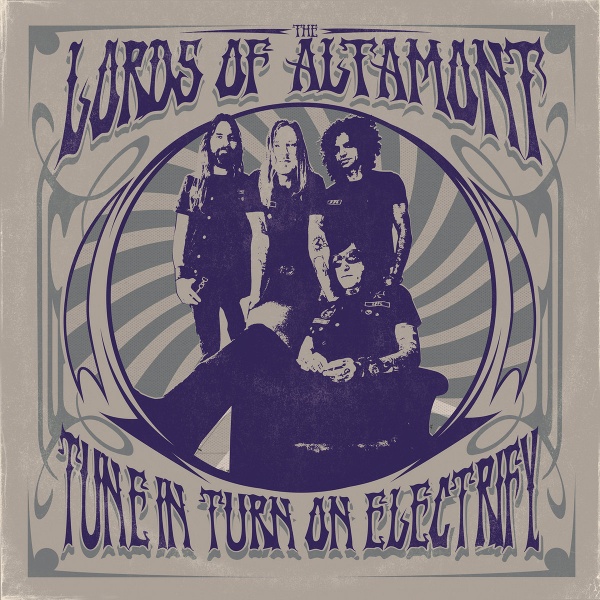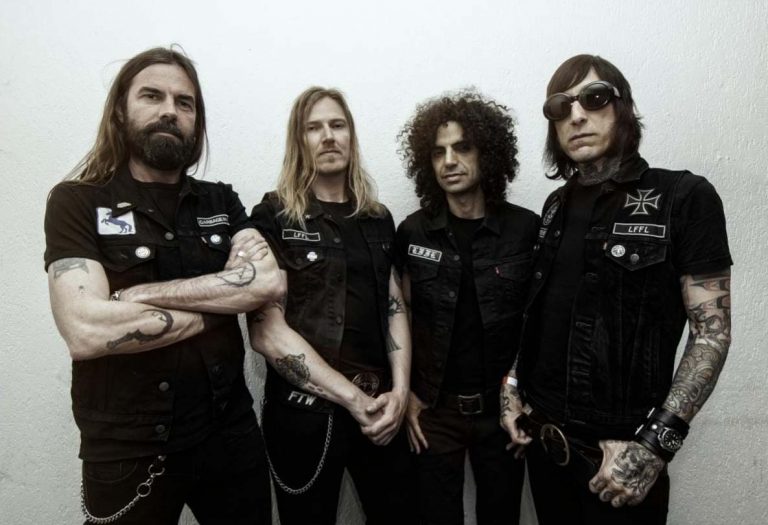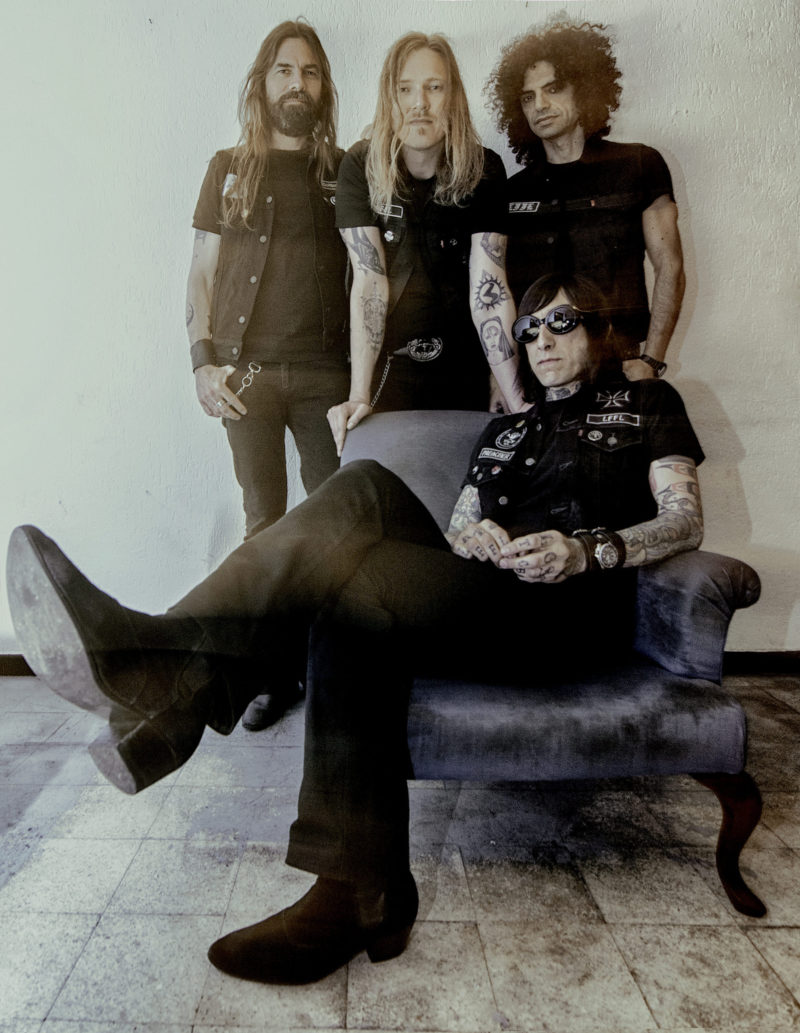Tune In, Turn On, Electrify by The Lords of Altamont: Album Review
Tune In, Turn On, Electrify by The Lords of Altamont: Album Review
Tune In, Turn On, Electrify! is the newest album by stoner rock veterans The Lords of Altamont. This album is tight and heavy, rollicking with graveyard thunder.
Recorded across the globe against the backdrop of the COVID-19 pandemic, Tune In, Turn On, Electrify! is the seventh album by The Lords of Altamont, a band that has been rocking since 1999. This is an experiment for the band that shows their evolving sound, while paying homage to their stoner rock roots.
The Lords of Altamont don’t waste your time screwing around. Tune In, Turn On, Electrify! kicks you in the face the very second you press play, with the kick-ass song “Living With the Squares.” The album starts with an explosive, driving riff that tells you to get on board or get the hell out of the way. Each song feels a little different from the rest. Some are more straightforward punk, some are more expressive and psychedelic, some are more metal, and some are more hard rock.
Tune In, Turn On, Electrify! kicks you in the face the very second you press play.
The most interesting song on the album is “We’ll Never Leave (This World Alive)”. This seems to be a great example of the “positive nihilism” trope, and features the catchiest hook and chorus on the entire album. The band urges their listeners to live for today and take no prisoners, because death is inescapable. They sing “keep on moving, keep on moving / keep that candle burning at both ends / you’ll be fine / never leave this world alive”.
“Levitation Mind” opens with a sample of a girl talking about how the only time she ever felt like she could understand herself was when she was tripping on LSD. This is the “slowest” song on the album, a quasi-psychedelic meditation on psychedelic drugs.
The album consists almost entirely of original songs, with the one and only cover tune being an appropriately grim cover of “Lost in the Future”, originally by The Stooges. The band’s songwriting is not as good as their rocking cohesion and production quality, but is still solid songcraft nonetheless.
The album features soaring vocals from singer Jake Cavaliere, and anthemic choruses from the rest of the band. The rumbling, fuzzy bass work of Shawn Medina locks in with the drums while John Saletra plays tasteful, precise, and killer lead guitar lines that perfectly complement the rhythm section. The drums are slightly hidden in the mix on some of the songs, but the listener can still feel the beat through the music.
This is an experiment for the band that shows their evolving sound, while paying homage to their stoner rock roots.
The production quality on this album is excellent. It’s hard to believe that the album was recorded separately with the members spread out across the globe. They are a tight, well-rehearsed unit. The rhythm section is perfectly in sync while the vocals and lead lines are locked in with the rest of the band.
Marta Mastergood
This is a genre that’s arguably over-saturated with occult iconography and motifs, but The Lords of Altamont avoid this. The band hints at the occult throughout the album, but they mostly refrain from overt occult imagery and symbolism.
Tune In, Turn On, Electrify! pays tribute to the band’s influences, without nosediving into queasy nostalgia. Their name is an obvious reference to the infamous Altamont Concert that is mainly remembered for an incident where a young fan named Meredith Hunter brandished a revolver, and was then murdered by The Hells Angels, who had been hired by The Rolling Stones to serve as security at the concert. There were several other deaths and violent incidents that night and “Altamont” has since become synonymous with violence and the dark side of the counterculture.
The title of this album, Tune In, Turn On, Electrify! is also a shout-out to Timothy Leary, a controversial figure of ‘60s counterculture. Leary’s iconic mantra “Tune In, Turn On, Drop Out” became one of the catchphrases of the psychedelic era.
Musically, the band sounds vaguely like 70s hard rock bands such as Judas Priest, but no one would mistake this for a Priest album. The Lords of Altamont are not interested in making a nostalgia piece; nor are they stuck in the past. Their familiar but fresh sound and their subtle but not overwhelming allusions to the occult and the counterculture make this a Grade A album.
Marta Mastergood
Gallery
Recent Articles
Unicorn by Rio Kosta–Album Review
•
February 24, 2026
Vinyl Relics: Black Kangaroo by Peter Kaukonen
•
February 21, 2026

Loading...





